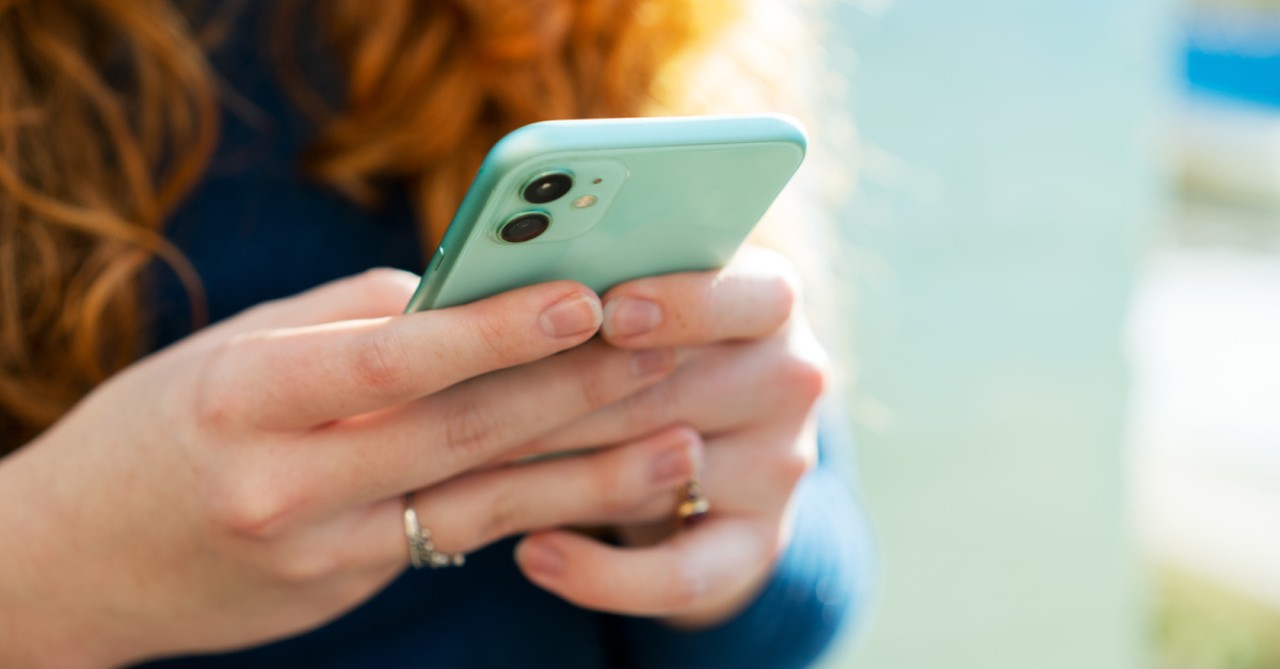
Your phone is more addictive than you realize. And while we each justify our reasons for panicking when we are without it—or when we think it’s been lost or stolen—our reaction resembles addiction far more than we’d like to admit.
In Psalm 90:12, Moses wrote: “So teach us to number our days, that we may present to You a heart of wisdom.” (NASB) The fact that life is short and our days are numbered is reason enough to be more focused on and attached to the people in our lives than our electronic devices. Yet, to put that thing down or, God forbid, shut it off for an hour or two can have us feeling withdrawal pains, anxiety, or full-on panic.
What did we ever do before carrying a personal telephone-plus-everything-else with us?
Lest you be another phone-dependent statistic, here are ten signs you may be addicted to your phone and how to kick the habit:
Photo Credit: ©Getty Images/Tim Robberts
1. You Feel Anxious, Panicked, or Disoriented When You Lose Your Phone

1. You Feel Anxious, Panicked, or Disoriented When You Lose Your Phone
SLIDE 1 OF 10
I understand you have passwords and sensitive info on your phone, but if you’re smart and cautious, you also have a face or fingerprint ID, making it impossible for someone who may find or steal your phone to access your secrets. So, is it the password-protected information or your phone that you’re worried about, losing the top-of-the-line expensive device itself, or the idea of losing something that feels more like an appendage that causes anxiety?
Ask yourself, “What is the worst thing that could happen now that I’ve left my phone at home?” Or, “What is it that someone else could access on my phone that would devastate me?” Or, maybe the question is: “Why do I feel such panic every time I think I’ve lost my phone?” An honest answer to those questions may reveal why you feel so anxious when it’s gone and if it’s more of an addiction than a legitimate concern.
Photo Credit: William Hook/Unsplash
2. You Fear What Someone Might See On It
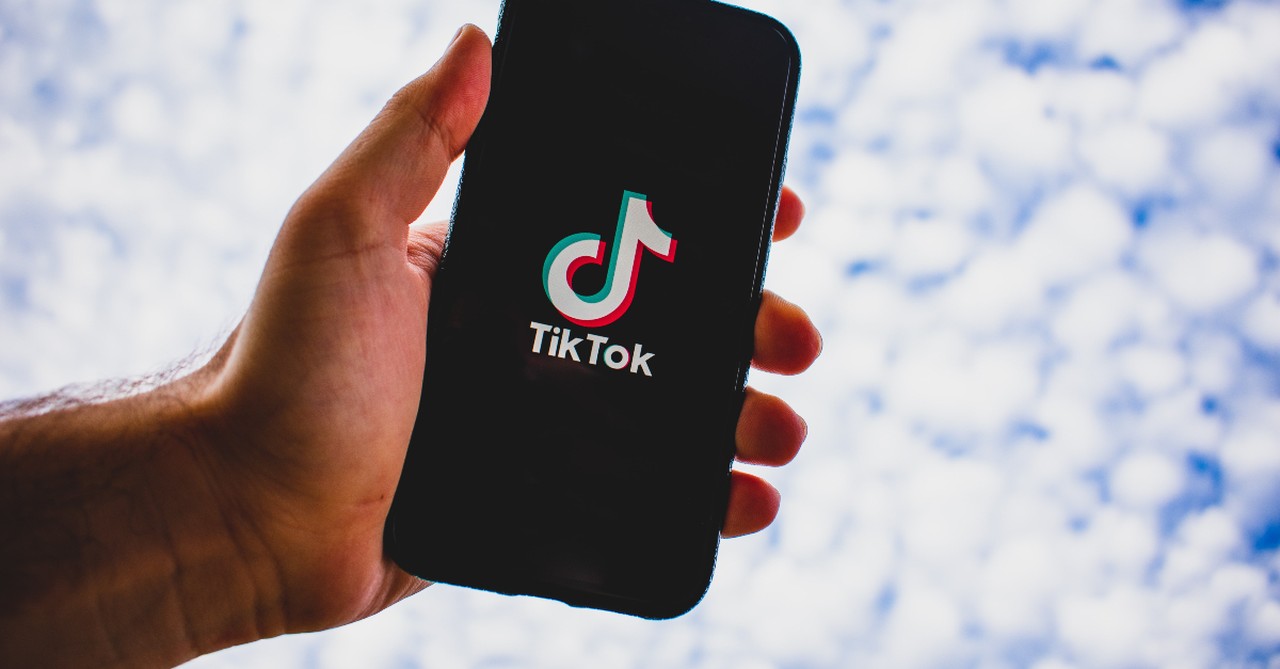
2. You Fear What Someone Might See On It
SLIDE 2 OF 10
If there’s anything on your phone that you’re hoping to keep from others, perhaps the phone is the vehicle for the true addiction—maybe it’s how you place those bets, communicate with someone you shouldn’t, or watch what your spouse would be horrified at. Maybe your phone is where you keep pics you’d be ashamed of others seeing. If there’s any anxiety associated with your phone when it’s outside your presence, it might be time to ask yourself, “Who and what is on the throne of my life, other than God?”
God sees all and knows all. And anything we might try to hide from Him or anyone else is a sign that our hearts are not where they should be, and God is not the One we seek to serve above all. If there’s anything you’d be ashamed of, get rid of, or come clean with a trusted friend and start using a burner phone with no internet access or means to continue whatever you don’t want others to know about.
Photo Credit: ©Unsplash/Kon Karampelas
3. You Constantly Reach For Your Phone

3. You Constantly Reach For Your Phone
SLIDE 3 OF 10
I get it. And I do it too. More times than once, I’ve looked frantically through my bag for my phone while I was talking about it! Again, is it a panic because my maybe lost phone is so valuable? (Nope. My iPhone is always four to five years older than the newest release so that I can keep my payments and phone bill lower!) So why is it so important to always know where it is? Are you and I mindful of where our kids are, what the new puppy is chewing, or how our aging parents are faring?
If you need the security of constantly knowing your phone is near you, that’s called dependence. Another word for dependence is addiction. Practice putting it away until you need it. (That’s another sign of addiction. How often do you feel you need to look at your phone, as opposed to how frequently you need to use it?)
Photo Credit: ©GettyImages/Yuliya Taba
4. Your Eyes Are on Your Phone More Than on Anything Else
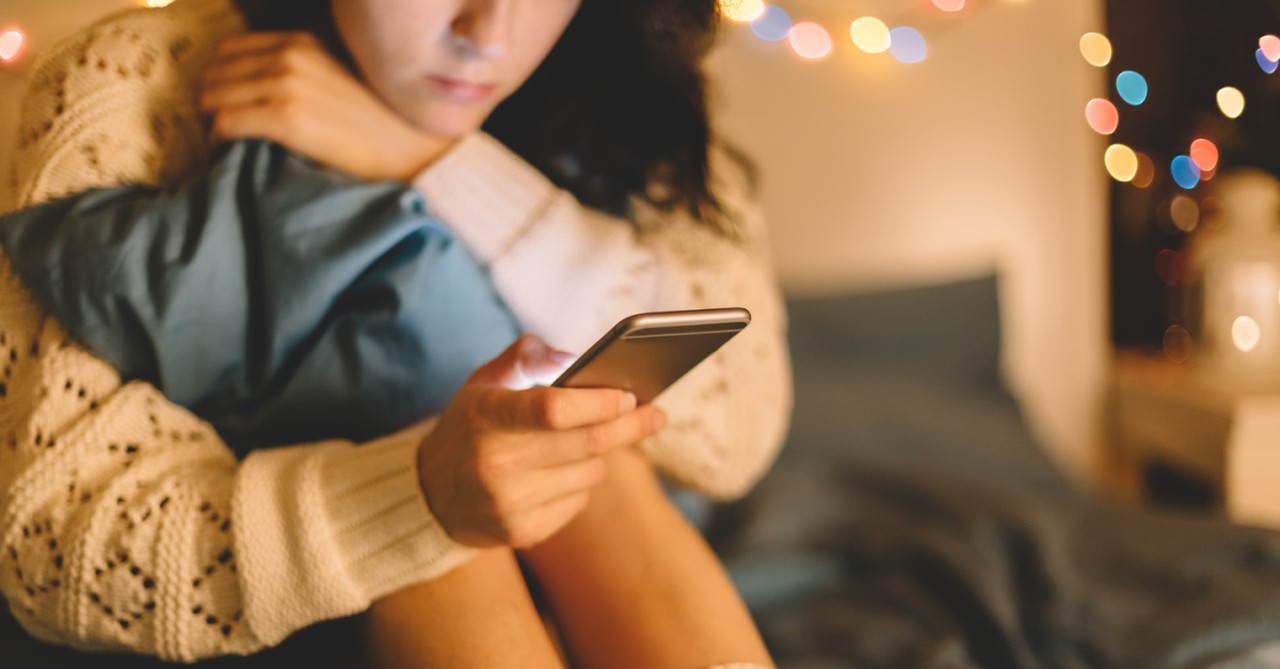
4. Your Eyes Are on Your Phone More Than on Anything Else
SLIDE 4 OF 10
We are a culture of people with noses buried in our phones. How often have you nearly walked into someone because you were looking at your phone—or they were looking at theirs? If you look around you (instead of looking at your phone), you’ll notice how many people are not paying attention to what they’re doing or what’s happening around them because their eyes are glued to a screen.
Today, we’re so absorbed in our phones we rarely notice when someone else is in need. If your phone makes you oblivious to the needs or even presence of others, it’s become a harmful drug that has changed you, and not for the better.
Photo Credit: ©Getty Images/Martin DM
5. You Fear for Your Safety If You Don’t Have Your Phone Close By
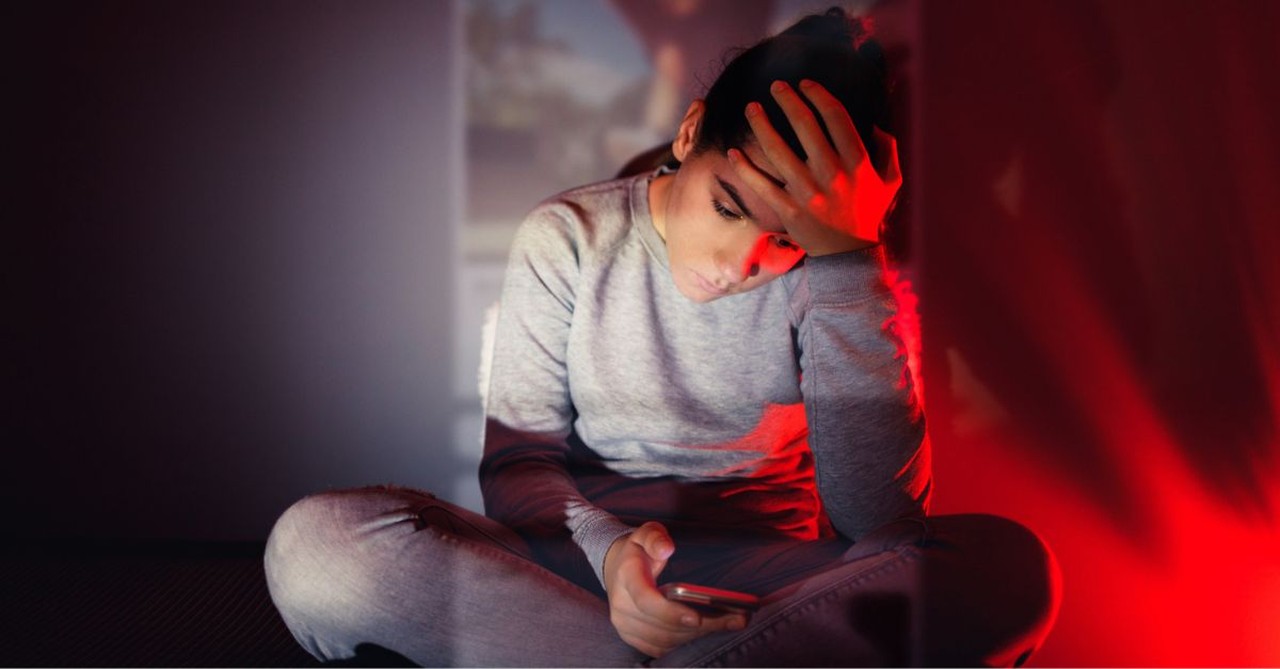
5. You Fear for Your Safety If You Don’t Have Your Phone Close By
SLIDE 5 OF 10
What if I get in an accident and can’t call someone? You may be thinking. Or, maybe your concern is for your children or grandchildren and your ability to check in with them or let them know where you are. Do you realize the majority of people alive today still remember a time when phones weren’t portable? Some of us even remember “answering machines” (we call it voice mail today), so if you missed a call, someone left a message, and you could call them back. While it’s inconvenient to be without a phone, especially in an emergency, we got by before cell phones. And further, we trusted God much more than we tend to today.
If your trust is in making a call, checking in with someone, and tracking your kids, then your trust is no longer in the One who never slumbers nor sleeps (Psalm 121:2-3). Phones can give us a false sense of security and make us believe we’re in control. But don’t forget the Only One who controls all that happens. If having a phone with you makes you pray less often because you rely on your tech to keep you safe, it’s become your source of protection instead of God. Psalm 4:8 tells us, “You alone, Lord, have me dwell in safety” (NASB). Put your trust where it belongs—not in Android or Apple, but in the Almighty.
Photo Credit: ©Getty Images/Georgijevic
6. You’re Consulting Google More Than God

6. You’re Consulting Google More Than God
SLIDE 6 OF 10
Who you go to first when you need an opinion, advice, or direction is evidence of who has your highest respect. Is it your parent, pastor, or spouse? Is it AI (which goes by Siri, Alexa, or Google)? Or is it the Lord God? Anything we need or depend on more than the living God has become a substitute god to us. And that’s another definition of an addiction. It’s something we obsess over, worship, need, and crave—something we need to surrender to our Higher Power, the Lord Jesus Christ.
If the amount of time you spend with your phone rivals—or far exceeds—the amount of time you spend with your God, it is apparent who you are worshipping. Don’t let your device, or anything else, take the place of the One we are commanded to love with all our heart, soul, and mind (Matthew 22:37). I don’t see believers today spending nearly as much time glued to their Bibles as they are to their phones (unless of course, they’re reading a Bible app—let’s hope so).
Photo Credit: Christian Wiediger/Unsplash
7. We Give the Phone More Attention Than Others

7. We Give the Phone More Attention Than Others
SLIDE 7 OF 10
Walk into a restaurant and scan the room. Chances are, at nearly every booth or table, at least one, if not all, of the individuals are staring at their phones instead of the one sitting next to or across from them. I see this among couples and even families with preteens or children. Nearly everyone is spending time with their screen. Most are absorbed in their device for whatever entertainment, information, or distraction they provide. But when we lose touch with who is right in front of us out of an obsession not to take our eyes away from a text conversation, an online chat, a social media feed, or an online game, we’ve told everyone in our presence that the contents on our device are more important than they are.
My friend, that’s what an addiction does to us. It becomes increasingly more important to us; eventually, we don’t remember how we survived without it. And we become increasingly oblivious to how rude we are to others when we prefer our drug of choice to them. People with an addiction only think about their next high. If you’re overly focused on what’s happening on your phone or what you’ve missed by not looking at it for an hour or longer, that’s a problem.
Photo Credit: ©GettyImages/skynesher
8. You Rarely Turn Off Your Phone

8. You Rarely Turn Off Your Phone
SLIDE 8 OF 10
Did you know it’s good to turn off your phone now and then so it can reset? Did you know it’s healthy—mentally and even physically—to turn it off and keep it and its radio waves far from you when you sleep? If you are too stressed out by how long it takes your iPhone to turn back on or at the idea of what you might miss while it’s off, that’s another sign of ultra-dependence on your device.
Photo Credit: ©GettyImages/Ridofranz
9. You Rely on it More Than Your Brain and Abilities

9. You Rely on it More Than Your Brain and Abilities
SLIDE 9 OF 10
We used to add numbers in our heads (or on our fingers.) We used to count our steps as we walked (which kept us alert and our brains working) or clock our time on a watch. (Do you realize most teenagers today don’t know how to read a watch face or tell time on a clock dial?) We used to stop and think about how to spell a word while writing or when composing an email or text. All these functions are done for us, causing us to use our brains less than ever.
When you have a question about something that happened long ago, ask a family member old enough to remember it or ask someone who has gone to school to study a topic rather than google it on your phone. Try thinking through a problem and arriving at a solution rather than getting AI’s opinion. Don’t let your phone believe you. We only keep brain cells if we use them. Just like drugs, your phone dependence might be frying your brain.
Photo Credit: ©GettyImages/diego_cervo
10. It’s Become Your Go-To for Instant Entertainment or Distraction
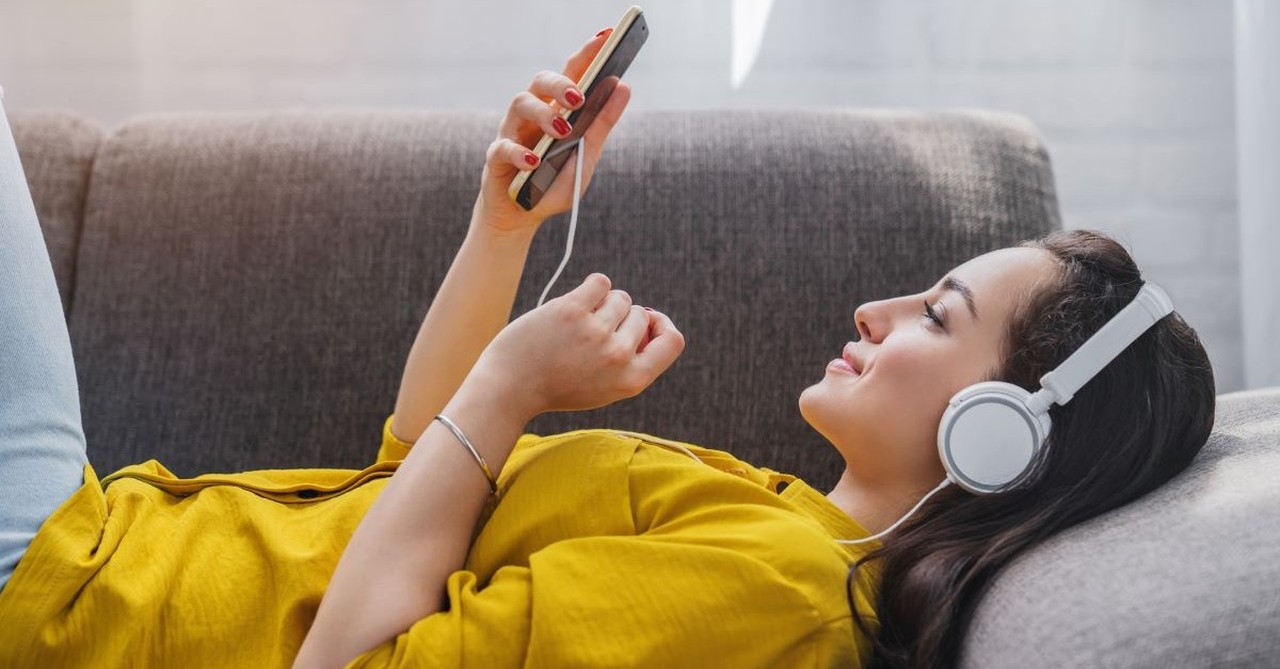
10. It’s Become Your Go-To for Instant Entertainment or Distraction
SLIDE 10 OF 10
Do you observe what’s happening around you, talk with someone standing next to you, or start thinking or praying about something when there’s silence or inactivity around you? Or do you pull out that blasted phone when there is dead space in the theatre, silence during a conversation, inactivity in the room, or you must wait in line for something?
If you pull out your phone whenever you’re bored, think about what you’re not doing instead. Are you failing to think through a situation, reflect on past behavior to be more self-aware of your actions, praying silently about what you observe? I was once in a bank that was robbed, but when police asked if I noticed the person right in front of me who robbed the teller, I was embarrassed to say that I saw nothing; I was too immersed in the contents of my phone! Choose to observe what’s happening around you at the expense of neglecting your phone. You never know when God has a divine appointment for you that you might miss because your nose is in your phone.
For more on overcoming phone addiction and getting back in touch with God and friends, see Cindi’s books: The New Loneliness: Nurturing Meaningful Connections When You Feel Isolated and The New Loneliness Devotional: 50 Days to a Closer Connection with God
Photo Credit: ©GettyImages/Inside Creative House

Originally published April 13, 2025.






